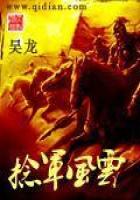Wherever there are slaves there are fugitives if there is an available place of refuge.The wilds of Florida were such a refuge during the early part of last century.When the Northern States became free, fugitive slaves began to escape thither, and Canada, when it could be reached, was, of course, the goal of perfect security and liberty for all.
A professed object of the early anti-slavery societies was to prevent the enslavement of free negroes and in other ways to protect their rights.During the process of emancipation in Northern States large numbers of colored persons were spirited off to the South and sold into slavery.At various places along the border there were those who made it their duty to guard the rights of negroes and to prevent kidnapping.These guardians of the border furnished a nucleus for the development of what was later known as the Underground Railroad.
In 1796 President Washington wrote a letter to a friend in New Hampshire with reference to obtaining the return of a negro servant.He was careful to state that the servant should remain unmolested rather than "excite a mob or riot or even uneasy sensations in the minds of well disposed citizens." The result was that the servant remained free.President Washington here assumed that "well disposed citizens" would oppose her return to slavery.Three years earlier the President had himself signed a bill to facilitate by legal process the return of fugitives escaping into other States.He was certainly aware that such an act was on the statute books when he wrote his request to his friend in New Hampshire, yet he expected that, if an attempt were made to remove the refugee by force, riot and resistance by a mob would be the result.
Not until after the foreign slave-trade had been prohibited and the domestic trade had been developed, and not until there was a pro-slavery reaction in the South which banished from the slave States all anti-slavery propaganda, did the systematic assistance rendered to fugitive slaves assume any large proportions or arouse bitter resentment.It began in the late twenties and early thirties of the nineteenth century, extended with the spread of anti-slavery organization, and was greatly encouraged and stimulated by the enactment of the law of 1850.
The Underground Railroad was never coextensive with the abolition movement.There were always abolitionists who disapproved the practice of assisting fugitives, and others who took no part in it.Of those who were active participants, the larger proportion confined their activities to assisting those who had escaped and would take no part in seeking to induce slaves to leave their masters.Efforts of that kind were limited to a few individuals only.
Incidents drawn from the reminiscences of Levi Coffin, the reputed president of the Underground Railroad, may serve to illustrate the origin and growth of the system.He was seven years old when he first saw near his home in North Carolina a coffle of slaves being driven to the Southern market by a man on horseback with a long whip."The driver was some distance behind with the wagon.My father addressed the slaves pleasantly and then asked, 'Well, boys, why do they chain you?' One of the men whose countenance betrayed unusual intelligence and whose expression denoted the deepest sadness replied: 'They have taken us from our wives and children and they chain us lest we should make our escape and go back to them."' When Coffin was fifteen, he rendered assistance to a man in bondage.Having an opportunity to talk with the members of a gang in the hands of a trader bound for the Southern market, he learned that one of the company, named Stephen, was a freeman who had been kidnapped and sold.
Letters were written to Northern friends of Stephen who confirmed his assertion.Money was raised in the Quaker meeting and men were sent to recover the negro.Stephen was found in Georgia and after six months was liberated.
During the year 1821 other incidents occurred in the Quaker community at New Garden, near Greensboro, North Carolina, which illustrate different phases of the subject.Jack Barnes was the slave of a bachelor who became so greatly attached to his servant that he bequeathed to him not only his freedom but also a large share of his property.Relatives instituted measures to break the will, and Jack in alarm took refuge among the Quakers at New Garden.The suit went against the negro, and the newspapers contained advertisements offering a hundred dollars for information which should result in his recovery.To prevent his return to bondage, it was decided that Jack should join a family of Coffins who were moving to Indiana.
At the same time a negro by the name of Sam had for several months been abiding in the Quaker neighborhood.He belonged to a Mr.Osborne, a prototype of Simon Legree, who was so notoriously cruel that other slave-owners assisted in protecting his victims.
After the Coffins, with Jack, had been on the road for a few days, Osborne learned that a negro was with them and, feeling sure that it was his Sam, he started in hot haste after them.
This becoming known to the Friends, young Levi Coffin was sent after Osborne to forestall disaster.The descriptions given of Jack and Sam were practically identical and it was surmised that when Osborne should overtake the party and discover his mistake, he would seize Jack for the sake of the offered reward.Coffin soon came up with Osborne and decided to ride with him for a time to learn his plans.In the course of their conversation, it was finally agreed that Coffin should assist in the recovery of Sam.















